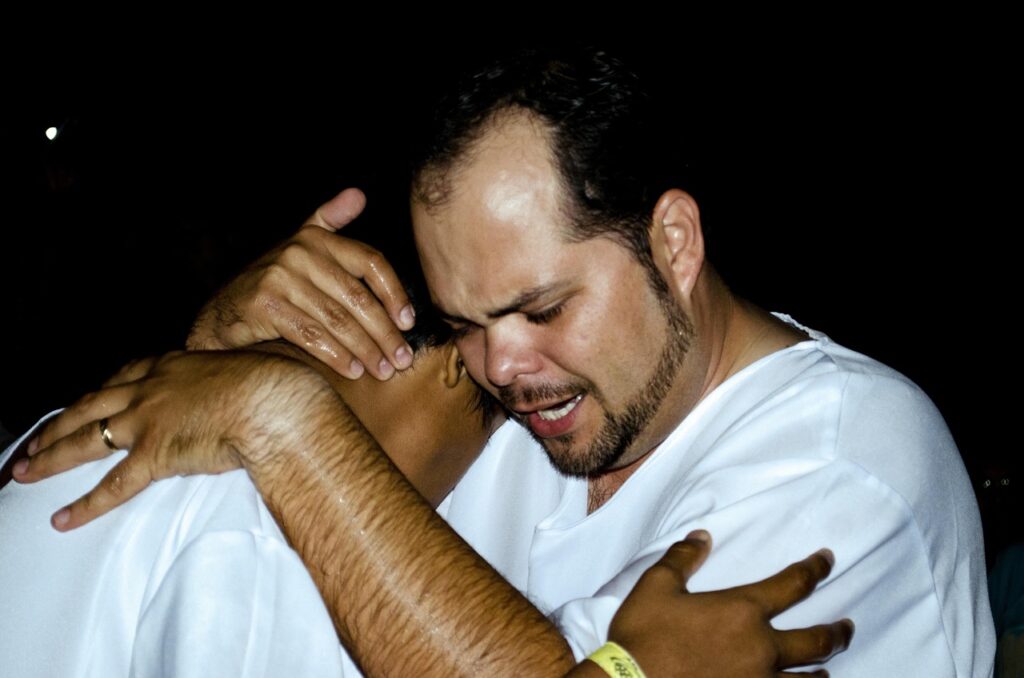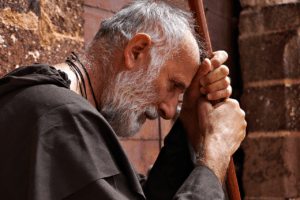Reflection for the Fourth Sunday of Lent C
Readings: Joshua 5: 9a, 10-12 (RM) or 9-12 (RCL); Psalm 34 RM) or Psalm 32 (RCL); 2 Corinthians 5: 17-21 (RM) 16-21 (RCL); Luke 15: 1-3, 11-32.
The story Jesus told, that we know as “The Prodigal Son,” might better be called “The Compassionate Parent.” It’s a rich tale, more complex than it appears at first glance, with a solid story arc, believable characters, and an image of divine generosity and forgiveness that cannot be missed.
Well, uh, no… it’s quite possible to miss the point. It’s possible to hate the point.
And that is how we begin in the first century, and crash-land in the 21st.
This story is thoroughly gendered – it has three male characters and no women (unless you count “prostitutes.”) Yet the quality of the father’s astonishing generosity in welcoming home the wayward younger son, and his patient dealings with the jealous elder brother, sound more like the stereotype of a mother. Particularly when you situate the story in a first-century Middle Eastern culture, and in a father/son relation in which property and inheritance play a key role.
First, what did the younger son actually ask for? At their father’s death he would have come into a much smaller portion of the family inheritance than the older brother in any case. But he takes what he’s given as liquid assets, moves far away, and squanders it all. His rich friends disappear. The climax of his fall shows him employed by a non-Jew, feeding unclean animals, and starving to the point of wanting to eat the carob pods he threw to the pigs.
His motives seem more pragmatic than ethical. He apparently never thought in terms of reforming his life, begging forgiveness, or promising to compensate for the damage and insult to his family, although he came up with a good speech. He just wanted the food.
When the father saw his son at a distance, he set off at an impulsive run, totally unseemly for an elderly Oriental gentleman. He called for his bedraggled son to be clothed in a robe, sandals on his feet (no longer barefoot like a servant), and wearing a ring to signify his restored status. Then the father ordered the fatted calf killed, to supply meat for a community-wide festive meal.
Then, in what was originally a second story, the father deals gently with the resentment of the older son, affirming this son’s honoured place. In both cases, the father shows exemplary composure, deep wisdom, and breathtaking compassion. He shows nothing less than profound empathy.

Did you know that “empathy” is on its way to becoming hate speech?
Not everywhere – specifically, in far-right political movements, Christian nationalism, and the ideology of misogyny. In a podcast last week, Elon Musk proclaimed,
“The fundamental weakness of Western civilization is empathy. … so that, we’ve got civilizational suicidal empathy going on.”
He was talking about migration and compassion for migrants.
Recent book titles published by hard-right Christians include Allie Beth Stuckey, Toxic Empathy: How Progressives Exploit Christian Compassion, and Joe Rigney, The Sin of Empathy: Compassion and its Counterfeits.
According to New York Times columnist David French, in Christian nationalism,
“you do have quite a bit of literature… in the Christian nationalist right, that is decrying what they see as the ‘feminized church,’ feminized political discourse… And that empathy element is a part of their argument.”*
To draw a full circle back to our Gospel, Scripture scholar Dianne Bergant writes,
“This picture shatters the traditional patriarchal image and offers us a radically different picture of fatherhood, a picture totally incomprehensible to both of the sons. … This startling picture becomes the metaphor for understanding God.”**
Let’s give this metaphor of the empathic, compassionate God, all the credence, all the power we can. There’s no time better than the present.
© Susan K. Roll
*Sarah McCammon, “How empathy came to be seen as a weakness in conservative circles,” National Public Radio, Weekend Edition, March 22, 2025. npr.org
**Preaching the New Lectionary Year C, (Collegeville: Liturgical Press, 2000.)
Susan Roll retired from the Faculty of Theology at Saint Paul University, Ottawa, in 2018, where she served as Director of the Sophia Research Centre. Her research and publications are centred in the fields of liturgy, sacraments, and feminist theology. She holds a Ph.D. from the Catholic University of Leuven (Louvain), Belgium, and has been involved with international academic societies in liturgy and theology, as well as university chaplaincy, Indigenous ministry and church reform projects.





Thank you for a most pertinent metaphor for understanding God. It is disheartening to hear how empathy is being negated by those who wish to control the world. Thank you for such eloquent writing.